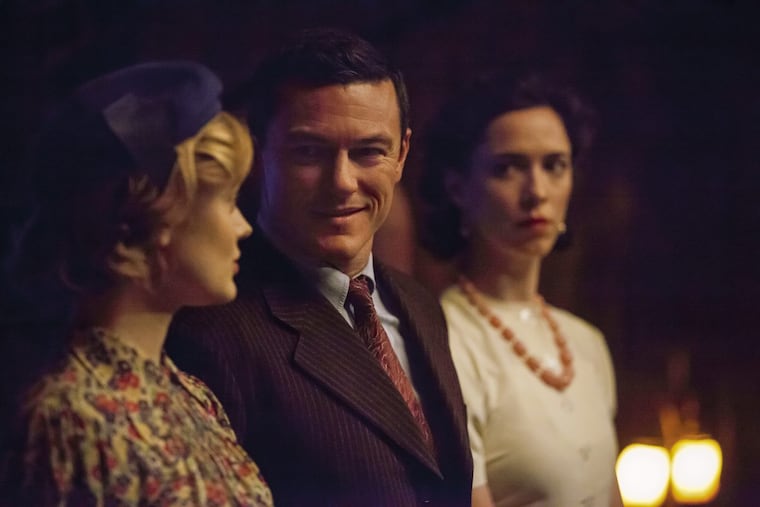Don't expect to be lassoed by 'Professor Marston and the Wonder Women'
'Professor Marston and the Wonder Women' is a conventional movie that doesn't capture the extraordinary lives of its subjects, the inventor and inspirations for the Wonder Wonder comic books.

You may know that Wonder Woman creator William Moulton Marston also invented the lie detector, but you may not have heard of a less celebrated Marston innovation, the Love Meter.
Marston, a Harvard-educated psychologist, actually held a press event to demonstrate the device — a blood-pressure monitor that he attached to the wrists of six chorus girls while they watched Greta Garbo in Flesh and the Devil. In the professor's opinion, the results showed that brunettes were more easily aroused than blondes.
If you were making a biopic of Marston, isn't this the kind of colorful detail you'd want to add?
You won't find it in Professor Marston and the Wonder Women, though, and after watching the movie, you can sort of see what writer-director Angela Robinson was up against, and why she might skip over Marston's occasional bouts of charlatanism.
Also, though he was not a public advocate for nontraditional families, he certainly was in favor of them. Marston (Luke Evans) was married to fellow academic Elizabeth Holloway Marston (Rebecca Hall), a union that secretly expanded to accommodate a woman named Olive Byrne (Bella Heathcote), who was spouse and lover to both, and mother of two of Marston's four children.
Marston was, to put it mildly, broad-minded. He believed that sexual and psychological health were predicated on freedom to explore (safely and consensually) innate sexual appetites. This included, in his case, bondage, a theme that turned up in the early Wonder Woman comic books he authored, to the consternation of censors.
He's an unconventional man imprisoned in a conventional film — flattened out by the cautious screenplay and by the sedate performance of Evans, whose professorial chin-stroking while (for instance) taking a peeping-Tom peek at a sorority spanking ritual is often unintentionally comic.
As usual, Hall is awesome. She has an effortless way of projecting ferocious female intellect, and we see why her character captivates Byrne. When Hall is on screen, the movie works. When she's not, it falters — particularly when Robinson falls back on a narrative device, used to join different sections of the film, that has Marston facing a family-values inquisitor (Connie Britton).
Britton makes for a suitably frosty Eisenhower-era bogeyman (or bogeywoman), but his theories — that superior female attributes could be revealed via submission to men — would be shouted down on any college campus today. As would his relationship with a female student, and rightly so.
He was a man of confounding contradictions, and the job of presenting them eventually proves too big a job for the movie.